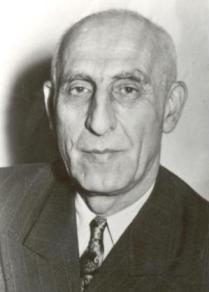Central Intelligence Agency
Central Intelligence Agency (CIA) is a civilian foreign intelligence service of the federal government of the United States, tasked with gathering, processing, and analyzing national security information from around the world, primarily through the use of human intelligence (HUMINT). As one of the principal members of the U.S. Intelligence Community (IC), the CIA reports to the Director of National Intelligence and is primarily focused on providing intelligence for the President of the United States and Cabinet of the United States.
History[edit | edit source]
The CIA was created on September 18, 1947, by the National Security Act of 1947 which was signed into law by President Harry S. Truman. It emerged in the aftermath of World War II as a successor to the Office of Strategic Services (OSS), which had been formed during the war to coordinate espionage activities against the Axis Powers. The CIA was established to oversee and conduct espionage and intelligence activities worldwide, ensuring the United States' national security.
Organization[edit | edit source]
The structure of the CIA includes several key components: the Directorate of Operations, responsible for the collection of foreign intelligence; the Directorate of Analysis, tasked with analyzing and providing intelligence reports; the Directorate of Science and Technology, which develops and employs innovative technology for intelligence purposes; and the Directorate of Support, which provides essential support to the Agency's operations with services such as logistics and communications.
Functions and Duties[edit | edit source]
The primary function of the CIA is to collect information that reveals the plans, intentions, and capabilities of the United States' adversaries and provides the basis for decision and action. This includes counterintelligence services, special activities, and covert operations authorized by the President. The Agency plays a significant role in counterterrorism, nonproliferation of nuclear and other weapons of mass destruction, and advising on foreign intelligence aspects of national security issues.
Controversies and Criticisms[edit | edit source]
Throughout its history, the CIA has been involved in various controversies and criticisms, including involvement in coups, assassination attempts, and human rights abuses. Notable examples include the 1953 Iranian coup d'état, the 1961 Bay of Pigs Invasion, and the enhanced interrogation techniques during the War on Terror. These actions have sparked debates about the role of intelligence services in a democratic society and the balance between national security and individual rights.
In Popular Culture[edit | edit source]
The CIA has been a subject of fascination in popular culture, depicted in numerous books, films, and television shows. These portrayals range from realistic to highly fictionalized accounts of the life of spies and the operations of the Agency, contributing to the public's perception of intelligence work.
See Also[edit | edit source]
- Intelligence Community
- National Security Agency (NSA)
- Federal Bureau of Investigation (FBI)
- Defense Intelligence Agency (DIA)
Search WikiMD
Ad.Tired of being Overweight? Try W8MD's physician weight loss program.
Semaglutide (Ozempic / Wegovy and Tirzepatide (Mounjaro / Zepbound) available.
Advertise on WikiMD
|
WikiMD's Wellness Encyclopedia |
| Let Food Be Thy Medicine Medicine Thy Food - Hippocrates |
Translate this page: - East Asian
中文,
日本,
한국어,
South Asian
हिन्दी,
தமிழ்,
తెలుగు,
Urdu,
ಕನ್ನಡ,
Southeast Asian
Indonesian,
Vietnamese,
Thai,
မြန်မာဘာသာ,
বাংলা
European
español,
Deutsch,
français,
Greek,
português do Brasil,
polski,
română,
русский,
Nederlands,
norsk,
svenska,
suomi,
Italian
Middle Eastern & African
عربى,
Turkish,
Persian,
Hebrew,
Afrikaans,
isiZulu,
Kiswahili,
Other
Bulgarian,
Hungarian,
Czech,
Swedish,
മലയാളം,
मराठी,
ਪੰਜਾਬੀ,
ગુજરાતી,
Portuguese,
Ukrainian
Medical Disclaimer: WikiMD is not a substitute for professional medical advice. The information on WikiMD is provided as an information resource only, may be incorrect, outdated or misleading, and is not to be used or relied on for any diagnostic or treatment purposes. Please consult your health care provider before making any healthcare decisions or for guidance about a specific medical condition. WikiMD expressly disclaims responsibility, and shall have no liability, for any damages, loss, injury, or liability whatsoever suffered as a result of your reliance on the information contained in this site. By visiting this site you agree to the foregoing terms and conditions, which may from time to time be changed or supplemented by WikiMD. If you do not agree to the foregoing terms and conditions, you should not enter or use this site. See full disclaimer.
Credits:Most images are courtesy of Wikimedia commons, and templates, categories Wikipedia, licensed under CC BY SA or similar.
Contributors: Prab R. Tumpati, MD





